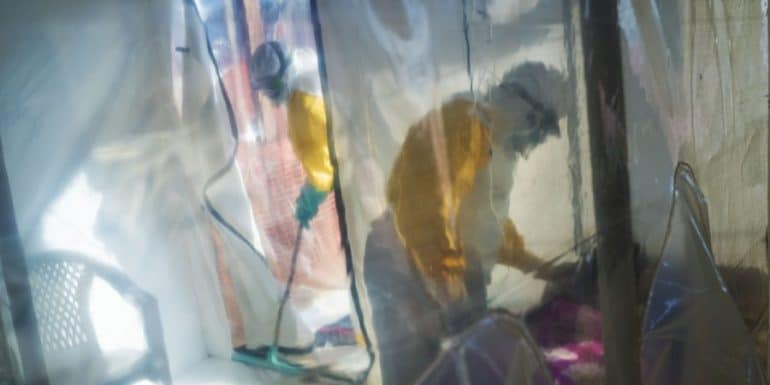The World Health Organization stressed on Thursday that the spread of the Ebola virus in the region and internationally cannot be ruled out after the outbreak of a new epidemic of the disease that causes, with the main symptom being hemorrhagic fever, in Badaka, Congo.
Following the re-emergence of the virus, in the northwestern part of the vast African country, two deaths have been recorded since April 21st.
As of April 27, "267 contacts had been identified," according to the WHO, which noted that at this stage it was "difficult to estimate the extent of the epidemic."
"The risk of this epidemic spreading regionally and internationally cannot be ruled out as the city of Badaka is washed by the Congo River and has river and land links to the capital Kinshasa, the Republic of the Congo, the Central African Republic and Angola." , stressed in a statement the organization, part of the UN system.
The WHO added that Badaka has air links with the province of South Ubangi, which borders the Central African Republic and the Republic of the Congo, as well as Kinshasa.
However, the organization currently considers the level of risk "moderate" at regional level and "small" at international level. It does not propose restrictions on travel and trade to and from the DRC.
The risk of spreading within the DRC is described as "high" due to the presence of infected animals and vectors, the alarming frequency of Ebola outbreaks in the country, environmental factors and the weakening of the health system due to chronic and contagious diseases.
This is the 14th outbreak of Ebola since 1976.
Although Badaka has been hit by two Ebola outbreaks (2020, 2018), the WHO emphasizes that some of the improvements made to the health system during previous crises have not been sustained.
"The province's health professionals need to be supported so that they can respond effectively. "Furthermore, logistical support is needed to reactivate the health infrastructure that was created during the previous epidemics."
According to the agency, 200 doses of vaccine were sent to Badaka and immunization began on April 27. More will be sent as needed.
The Ebola virus, first identified in 1976 in then-Zaire, now DR Congo, is transmitted to humans from infected animals. Human-to-human transmission occurs through body fluids. Main symptoms are persistent high fever, vomiting, bleeding, diarrhea.
